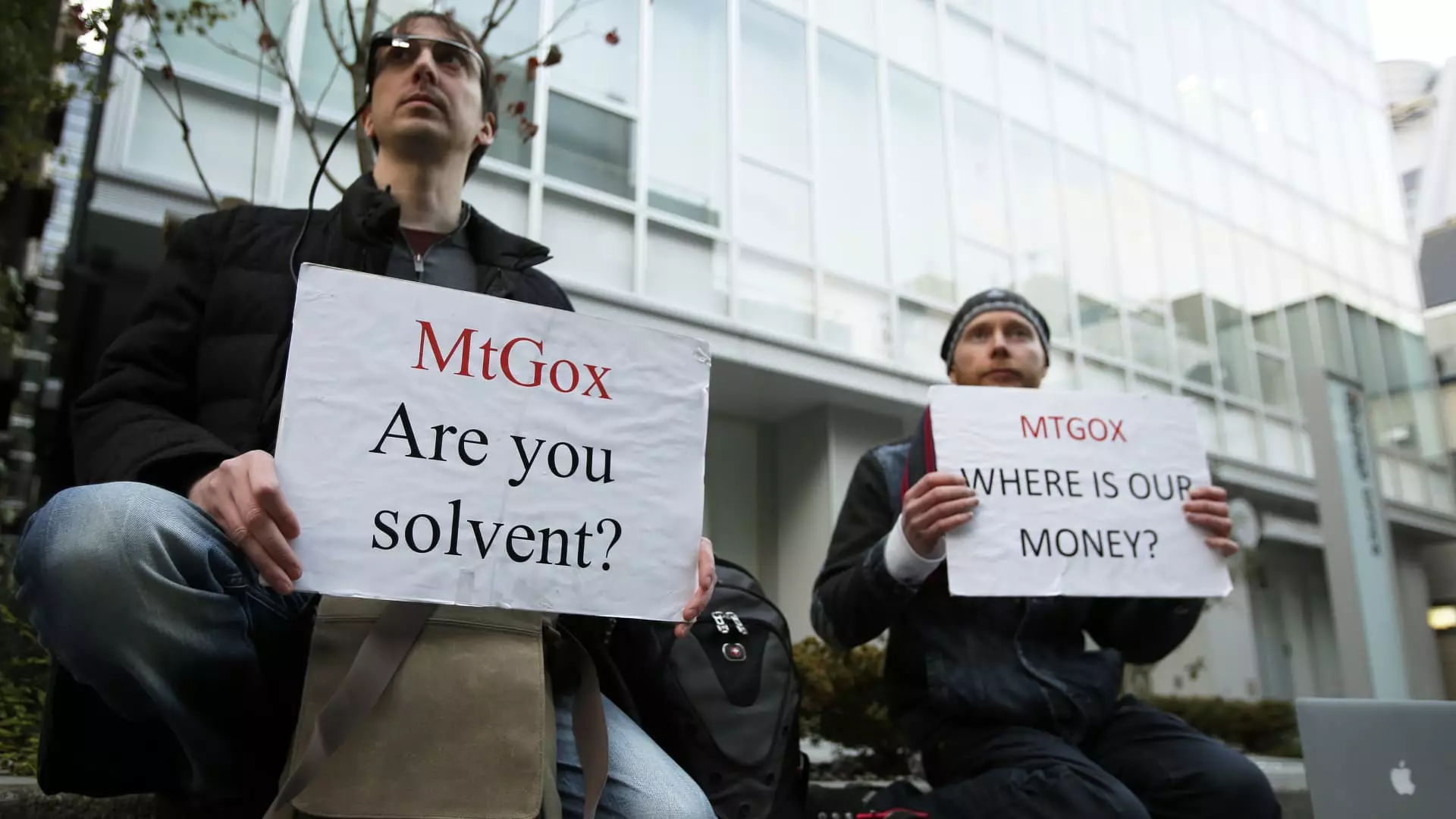In a historic turn of events, Mt. Gox, the Japanese bitcoin exchange that collapsed into bankruptcy ten years ago following a significant hack, is finally on track to repay its creditors. The exchange suffered a massive loss of up to 950,000 bitcoins in the 2011 hack, with only 140,000 coins being recovered. However, with the current value of bitcoin soaring, creditors are set to receive a handsome reward totaling roughly $9 billion. Among the claimants is Gregory Greene, an Illinois native who filed a class action lawsuit against Mt. Gox shortly after the bankruptcy was declared in 2014.
The increasing value of bitcoin over the years has resulted in a substantial gain for creditors like Greene. While the exact amount each creditor will receive is still uncertain, distributions are expected to begin in July. John Glover, chief investment officer of Ledn, a crypto lending firm, believes that creditors are in for a historic windfall. He predicts that many will choose to cash out their assets, turning the Mt. Gox bankruptcy into a highly profitable investment opportunity.
Mt. Gox, once the largest spot bitcoin exchange globally, allowed users to buy and sell bitcoin using various currencies. The exchange’s acronym, derived from “Magic: The Gathering Online Exchange,” reflected its origins in the gaming world. Nonetheless, a series of heists led to its closure in 2014. Mt. Gox attributed the disappearance of bitcoins to a bug in the cryptocurrency’s framework, claiming that hackers illicitly moved coins out of users’ accounts. The court-appointed trustee managing the bankruptcy proceedings announced that distributions to the 20,000 creditors would commence next month, with payments in both bitcoin and bitcoin cash.
The majority of creditors have indicated their preference for receiving payouts in cryptocurrency rather than fiat, reflecting their long-term commitment to the asset class. Early bitcoin investors such as Roger Ver and Adam Back are among the top holders with claims to Mt. Gox assets. While some analysts anticipate significant selling pressure from creditors looking to cash in on their gains, others believe that many long-standing creditors will continue to hold their positions. Potential tax consequences may further influence creditors’ decisions, with some opting to avoid hefty capital gains taxes by using their bitcoin as collateral for borrowing.
Analysts from JPMorgan Chase have warned of potential downside risk in the cryptocurrency market due to heavy selling by Mt. Gox creditors. However, they expect any price pressure to be short-lived, with prices rebounding from August onwards. Despite the possibility of market impact from creditor liquidations, there remains a core group of believers who have held onto their claims for a decade. These individuals have resisted previous offers and are eager to reclaim their bitcoins. While some uncertainties persist regarding the market effects of the Mt. Gox repayments, the overall sentiment is cautiously optimistic.
The impending repayments to Mt. Gox creditors mark a significant milestone in the history of cryptocurrency exchanges. The aftermath of the bankruptcy saga will likely reshape investor attitudes towards digital assets and highlight the resilience of early bitcoin adopters. As the crypto market continues to evolve, the lessons learned from Mt. Gox’s rise and fall serve as a testament to the enduring appeal and potential risks of this nascent asset class.


Leave a Reply